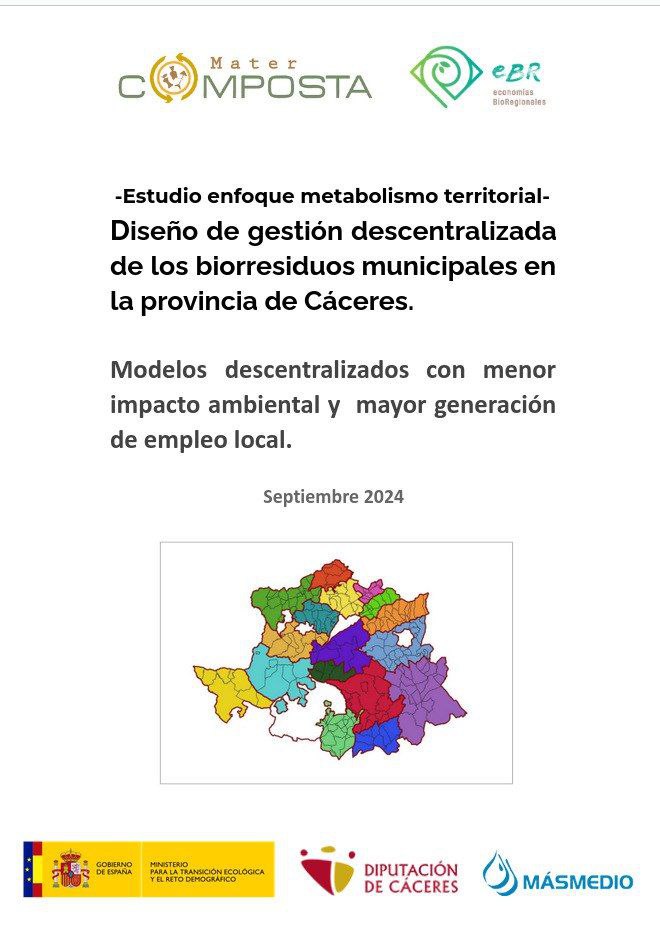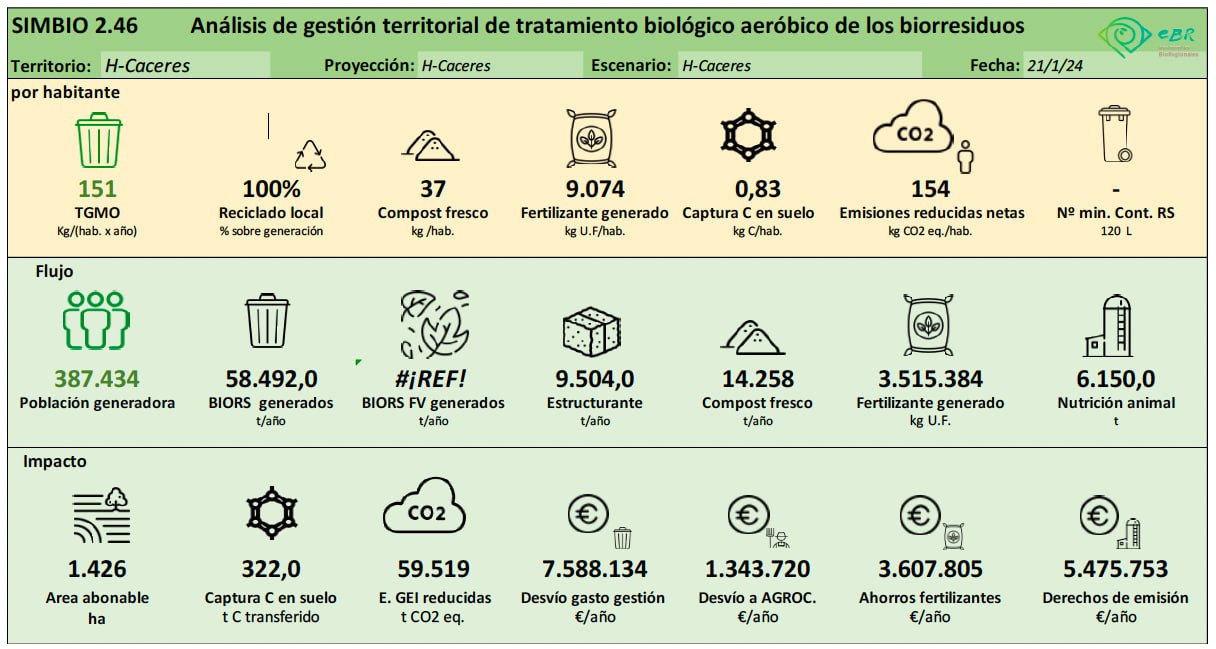Territorial metabolism: decentralized management of municipal biowaste in the province of Cáceres
Decentralized models with lower environmental impact and local jobs creation
The technical study “Design of decentralized management of municipal organic waste in the province of Cáceres. A territorial metabolism approach”
presents itself as a starting point to address the challenge of complying with current regulations (Law 7th February) by proposing an analysis of decentralised models with an optimised logistics cycle adapted to the territory. Alltogether present a lower environmental impact and allow the generation of local and green jobs.
The study presents as first part, an analysis of the current management system of urban bio-waste in the province of Cáceres (base scenario) in 22 management areas, quantifying the domains of generation, logistics and treatment. This approach is carried out considering territorial metabolic flows (volume generated and reused in traditional systems, types of transport, distances travelled, fuel consumed, greenhouse gas emissions produced, etc.) in 63 collection and transport routes modelled with different parameters (weekly frequency, transfer modules, trend variations, etc.) that link 310 population enclaves with the majority of their final destination being towards the 6 eco-parks of the treatment network.
In the second part, two scenarios of decentralized composting in the province are modeled on the same territorial basis:
- a) a so-called hyper-decentralized scenario in which all bio-waste generated is managed in cycles of prevention, local recycling in community composters and local and agricultural composting centers.
- b) A moderate decentralization scenario that reduces the local management component to 50% and the remaining flow maintains its current management system.
Both models are compared against management parameters (prevented biowaste, recycling at source and local recycling), economic (diversion of management costs, additional income received by composting farmers, fertilizer savings and emission rights), agronomic (compost generated, fertilizer units produced, potentially fertilizable area) and environmental (reduction of GHG emissions and carbon capture in soil).


If you wish to read this technical study, pleaase, fill in this form


